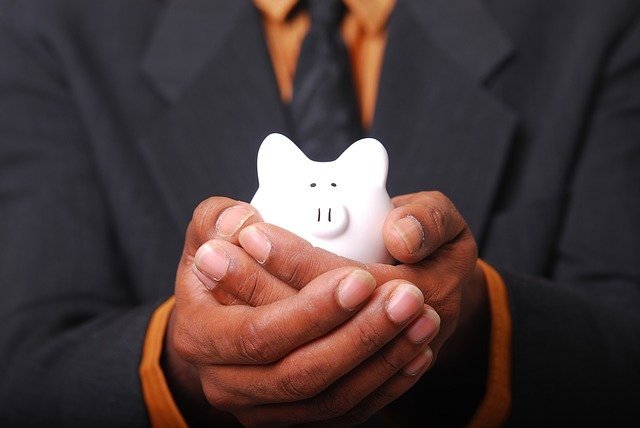
According to a new article published in the Journal of Positive Psychology, adhering to minimalism and voluntary simplicity philosophy may provide psychological benefits.
“Money can’t buy happiness,” according to the study’s author, Joshua Hook of the University of North Texas.
“Voluntary simplicity (minimalism) is a way of living that emphasizes reducing consumption and excess in order to spend more time on things that are really important to you.”
Hook’s study partially examined the concept that simple choices can lead to increased satisfaction.
He said, “Part of it is about getting rid of clutter in your life, having less physical stimuli, fewer decisions to make, and not looking at ads every day. All of those things take time away from what you really care about.”
Minimalism and psychological well-being may be linked.
Joshua Hook’s study found that simplicity was positively associated with increased well-being.
The more participants chose to live a simplified and uncluttered lifestyle, the greater their happiness and satisfaction with life were likely to be.
“Minimalism is not just about material possessions, it is about making conscious choices and practicing self-control in your daily life.
Minimalists should focus on what they value and do not mindlessly accumulate stuff that will later cause them to regret their decisions,” Hook said.
Hook added, “This research helps us understand the relationship between having too much ‘stuff’ in one’s life holds with greater happiness.”
The study further supports recent findings in psychology that prioritize experiences over material goods.
Happiness is described as subjective well-being, which means the presence of positive emotions including joy, satisfaction, pleasure, and gratification.
Hook’s study suggested that voluntary simplicity played a key role in increasing happiness.
The more participants chose to simplify their lives, the greater their happiness was likely to be.
Hook said, “Previous research has shown that people who live with fewer material goods are actually happier on average, but the cause of this relationship was previously unclear.”
Minimalism may help individuals focus on development.

Rather than focusing on material possessions, minimalists focus more on things they value. Decisions are made based on what is most important to them.
According to Hook, “This research suggests that there may be a way of living that will allow people to spend less time doing things that are not important or interesting for them each day.”
Hook says that those who live a minimalist lifestyle end up with less time to make decisions, and as a result, the decisions they make are more important to them.
Minimalism is an intentional way of defining essential things in one’s life and practicing self-control by reducing spending on non-essential goods and services. It may provide negative benefits for some people.
Hook added, “It’s not perfect for everybody, some people want to be able to decide every day where they’re going to eat lunch and buy things like that.”
Minimalism can seem appealing at first glance, but it might take time for it to prove beneficial in the long run.
Only those who practice minimalism are likely to experience the benefits.
“The key is not to feel bad about yourself if you can’t live a minimalist life, but rather to make more conscious decisions on what you value in your life and spend your time doing them,” Hook said.
“Spend less time trying to keep up with technology, media, and all the advertisements we see every day.”
The link between minimalism and well-being may be stronger.
Simplicity is an approach to life that lessens stress by having less physical, mental, emotional, and spiritual clutter. When people care about what matters most to them, they are more likely to spend their time on the things that matter most.
Simplifying means cutting back on excesses so you can focus on what’s important. It’s deciding that you don’t need to buy every new gadget, game, or gizmo that comes along.
The time you save by simplifying can be used to spend more of your life doing things you care about.
This research suggests that having less stuff allows people the time they need to make better decisions each day, rather than confusing, time-consuming decision-making after cluttering their lives with unnecessary choices.
Minimalism is a conscious approach to life that considers your values, motivations, and decision-making to help you live a more deliberate and meaningful life.
In order to reduce stress from deciding what things are essential in your life, you have fewer material possessions so you can focus on the things that are most important to you.
Minimalism is more than living with less, it is about creating a meaningful life with less.
Minimalists don’t live an out of control, cluttered lifestyle filled with stuff they don’t need. Instead, they try to fill their lives with only the essentials and find happiness in the process.
Minimalism is not chaos, it is conscious decision-making and living with less to make more important decisions each day.
It’s about creating a life with less stress, complexity, and clutter so you can focus on what matters most to you.
- See also: Why do difficult experiences have the potential to transform us
- See also: A psychological wellness profile of people with a healthy personality type
Conclusion
Minimalism has been described as a tool for those who wish to focus more on things they value.
The research presented in this article suggests that minimalists spend less time on tasks that are not meaningful and as a result, the decisions they make each day matter more to them than other people.
Simplifying is an approach to life that reduces stress by having less physical, mental, emotional, and spiritual clutter. In turn, more time can be spent on what matters most in life.
Minimalism is a tool to help you focus on the things that matter most so your decisions each day are important and meaningful.
It’s a process of prioritizing the essentials of one’s life and cutting back on excesses. Simplicity is an approach to life that lessens stress by having less physical, mental, emotional, and spiritual clutter.
It is about creating a meaningful life with less.
Minimalism can seem appealing at first glance but it might take time for it to prove beneficial in the long run. Only those who practice minimalism are likely to experience the benefits.
Simplifying means cutting back on excesses so you can focus on what’s truly important.
It’s deciding that you don’t need to buy every new gadget, game, or gizmo that comes along.
The time saved by simplifying allows you to spend more of your life doing things that matter.
This research suggests that reducing stress from having less stuff allows people more time to make better decisions each day, rather than confusing ones after cluttering their lives with unnecessary choices.



